Pitra, Putra Aur Dharamyuddha est un film de genre Documentaire réalisé par Anand Patwardhan
Pitra, Putra Aur Dharamyuddha (1994)
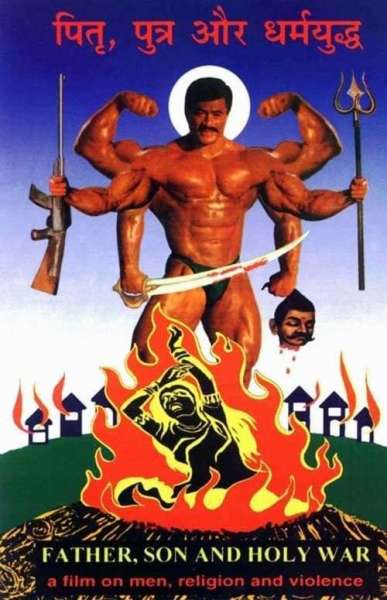
Si vous aimez ce film, faites-le savoir !
Father, Son, and Holy War (Pitra, Putra, aur Dharmayuddha) is a 1995 film by Indian documentary filmmaker Anand Patwardhan. The film is shot in two parts, with the first (Trial by Fire) examining the link between the violence of the Hindu nationalist movement, such as the demolition of the Babri Masjid, and sexual violence against women. The second part (Hero Pharmacy) looks at the nature of masculinity in contemporary urban India, and its role in encouraging sexual violence. As with other films of his, Patwardhan had to fight multiple court battles in order to force the national carrier Doordarshan to screen the film, a screening which eventually occurred on the orders of the Supreme court. The film received numerous national and international awards, and was also seen positively by critics.
Synopsis
The title of the first section is a reference to the ordeal that the Hindu god-king Rama used to test the fidelity of his wife after rescuing her from the demon king Ravana. The segment describes the various interconnected instances of communal violence in India in the years prior to the film. The film opens with the aftermath of the anti-Muslim riots in Bombay that followed the demolition of the Babri Masjid in December 1992. Several Hindu youth are heard speaking to the cameraman, saying that they had enjoyed the killing and looting, and that a list of Muslim individuals had been prepared beforehand, and that some authority figures knew of the plans to target Muslims.Commentaires
Postez un commentaire :
Suggestions de films similaires à Pitra, Putra Aur Dharamyuddha
Il y a 5 films avec le même réalisateur, 8964 ayant les mêmes genres cinématographiques, 978 films qui ont les mêmes thèmes, pour avoir au final 70 suggestions de films similaires.Si vous avez aimé Pitra, Putra Aur Dharamyuddha, vous aimerez sûrement les films similaires suivants :
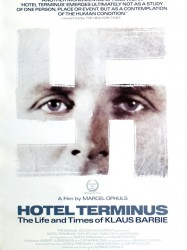 , 4h27
, 4h27Réalisé par Marcel Ophuls
Genres Guerre, Documentaire
Thèmes Documentaire sur le droit, Documentaire sur la guerre, Documentaire historique, Documentaire sur une personnalité, Politique, Documentaire sur la Seconde Guerre mondiale, Histoire de France, L'Occupation allemande en France
Acteurs Claude Lanzmann, Marcel Ophuls, Jeanne Moreau, Bertrand Tavernier
Note75%





Ce documentaire trace le portrait complexe et détaillé d'un des plus grands criminels de guerre : Klaus Barbie, connu pour être le boucher de Lyon. Officier de la Gestapo ayant torturé à mort Jean Moulin et mené à la déportation de centaines de juifs de France, notamment les enfants d'Izieu, découvrez également sa double vie d'agent des services secrets américains puis d'homme d'affaires en Bolivie. Résultant d'une enquête de deux ans auprès de quatre-vingt personnes interviewées dans le monde entier, ce film révèle un éclairage important sur la responsabilité de chaque partie concernant les crimes et la traque de Klaus Barbie.
 , 1h47
, 1h47Réalisé par Alex Gibney
Origine Etats-Unis
Genres Documentaire
Thèmes L'enfance, Religion, Documentaire sur le droit, Documentaire sur la religion, Documentaire sur la maltraitance des enfants, Maltraitance des enfants
Acteurs Jamey Sheridan, John Slattery, Chris Cooper, Ethan Hawke
Note79%





The film follows documentary filmmaker Alex Gibney as he examines the abuse of power in the Catholic Church system through the story of four deaf men — Terry Kohut, Gary Smith, Pat Kuehn and Arthur Budzinski — who set out to expose the priest who abused them during the mid-1960s. Each of the men brought forth the first known case of public protest against clerical sex abuse, which later lead to the sex scandal case known as the Lawrence Murphy case. Through their case the film follows a cover-up that winds its way from the row houses of Milwaukee, Wisconsin, through Ireland's churches, all the way to the highest office of the Vatican.
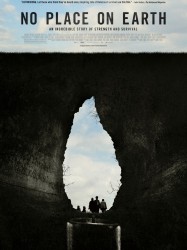
No Place on Earth (2012)
, 1h23Origine Etats-Unis
Genres Guerre, Documentaire
Thèmes Le racisme, Religion, Documentaire sur la discrimination, Documentaire sur le droit, Documentaire sur la guerre, Documentaire historique, Documentaire sur une personnalité, Documentaire sur la religion, Politique, Religion juive, Documentaire sur la Seconde Guerre mondiale
Note70%





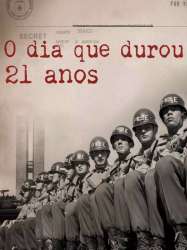
O Dia Que Durou 21 Anos (2012)
, 1h17Origine Bresil
Genres Documentaire
Thèmes La mer, Transport, Documentaire sur le droit, Documentaire historique, Documentaire sur la politique, Politique, Les dictatures latino-américaines
Note80%





The 1964 Brazilian coup d'état (Portuguese: Golpe de estado no Brasil em 1964 or, more colloquially, Golpe de 64) on March 31, 1964, culminated in the overthrow of Brazilian elected President João Goulart by the Armed Forces. On April 1, 1964, the United States expressed its support to the new military regime.
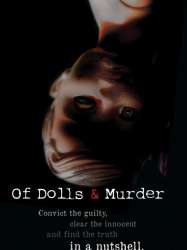
Of Dolls and Murder (2012)
Genres Documentaire
Thèmes Documentaire sur le droit
Acteurs John Waters
Note67%





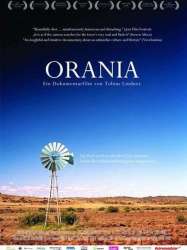
Orania (2013)
, 1h34Genres Documentaire
Thèmes Afrique post-coloniale, Le racisme, Documentaire sur la discrimination, Documentaire sur le droit, Documentaire sur une personnalité, Documentaire sur la politique, Politique
Note69%





In the town of Orania, 800 white Afrikaans people form an independent community. Their town is private property (bought in 1990) and they live independently from multicultural South Africa. Since the fall of apartheid, increasing crime levels, unemployment and social pressure has led to a small migration of people towards the town. In the town, the residents concentrate on preserving their shared culture. Residents stay in the town for their cultural ideals or for the town's safety and opportunities, and others stay out of desperation.
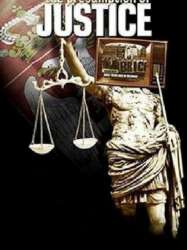
The Presumption of Justice (2012)
, 41minutesRéalisé par Boris Malagurski
Genres Documentaire, Historique
Thèmes Documentaire sur le droit
Acteurs Boris Malagurski
Note52%





The film focuses on an incident in which French football fan Brice Taton died in Belgrade, and which led to 12 young people being sentenced to a total of 115 years of prison. On September 17, 2009, a fight broke out on Obilićev venac Square when Partizan fans attacked several Toulouse fans, which - the film claims - led to Brice Taton falling off a ledge and dying in a hospital ten days later. According to the director Ivana Rajović, one of the Partizan fans, Stefan Veličković, couldn't have been a part of the fight, because he was getting a traffic violation ticket in Makedonska street several blocks away at the time the fight was taking place. In spite of Stefan having an alibi, he was sentenced to seven years in prison.

Putin's Kiss (2011)
, 1h20Origine Danemark
Genres Documentaire
Thèmes Documentaire sur le droit, Documentaire sur une personnalité
Note64%





Le film traite de l'expérience de l'activiste russe Masha Drokova dans l'organisation de jeunesse Nachi (Наши) soutenant Vladimir Poutine.

Saving Face (2012)
, 40minutesRéalisé par Daniel Junge, Sharmeen Obaid-Chinoy
Genres Drame, Comédie, Documentaire, Policier, Romance
Thèmes Documentaire sur le droit, Documentaire sur une personnalité, Documentaire sur la santé
Note79%





Le documentaire Saving Face (« Sauver le visage ») suit un chirurgien pakistanais basé à Londres, le Dr. Mohammad Jawad, lors de ses voyages au Pakistan pour ses interventions de chirurgie plastique réparatrice sur des femmes victimes d'attaque à l'acide.

Speciesism: The Movie (2013)
Origine Etats-Unis
Genres Documentaire
Thèmes Mise en scène d'un animal, L'environnement, Documentaire sur la protection animale, Documentaire sur le droit, Politique, Documentaire sur la nature
Note78%





 Connexion
Connexion